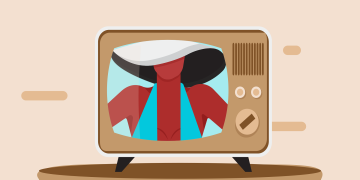Some would say that our lives are more complicated than they have ever been. As a result, stress has become a common companion for many.
The relentless demands of modern life often leave individuals grappling with its consequences. What you might not be aware of is that there is a tangible connection between stress and physical pain. Beyond the mental toll, stress has a knack for manifesting in the body, resulting in aches, tension, and discomfort.
This blog delves into the practice of physiotherapy and its role in tackling stress-induced physical pain. From understanding the dynamics of stress to exploring how physiotherapy can provide relief, this journey aims to shed light on an overlooked aspect of well-being.
The Connection Between Stress and Physical Pain
Stress is more than just a mental burden; it's a physical heavyweight too. When stress hits, your body releases hormones like cortisol, messing with your physiological balance. Chronic stress isn't just a passing annoyance; it's a silent troublemaker, contributing to long-term health issues.
Now, let's talk about how stress transforms into physical pain. Muscles and joints tense up like coiled springs, ready to snap. Your posture takes a hit, and suddenly, moving feels like a chore. Headaches? Blame stress for those too. It's not just in your head – stress has a knack for turning mental strain into tangible physical discomfort. So, next time you feel that ache, consider taking a breather; it might just be your body telling you to ease up on the stress throttle.
Physiotherapy: An Effective Approach to Alleviating Stress-Related Pain
Physiotherapy serves as a potent solution for alleviating stress-related pain, presenting a practical avenue for those seeking relief. Defined as a healthcare profession, physiotherapy addresses a broad spectrum of physical ailments, adopting a holistic approach that goes beyond merely treating symptoms. It encompasses a range of techniques and strategies aimed at promoting overall well-being.
In the context of stress management, physiotherapy emerges as a valuable ally. The incorporation of relaxation techniques, such as guided imagery and progressive muscle relaxation, adds a unique dimension to the treatment process. Moreover, breathing exercises play a pivotal role in stress reduction, with physiotherapists guiding individuals on proper techniques to enhance relaxation and alleviate tension.
Physiotherapy employs specific techniques tailored to address stress-related pain with precision. Manual therapy becomes a key player in releasing muscle tension, providing targeted relief where it's needed most. Simultaneously, posture correction and ergonomic advice play essential roles in mitigating stress-induced discomfort. Tailored exercise programs further contribute to stress reduction, fostering improved overall well-being.

Benefits of Physiotherapy Beyond Pain Relief
Physiotherapy goes beyond pain relief, offering surprising benefits in the connection between stress and physical pain. A notable advantage is the improvement in overall mental health. Regular physiotherapy sessions not only alleviate symptoms of anxiety and depression but also contribute to enhanced cognitive function through engaging physical activities. This dual approach addresses both physical and mental aspects, providing a comprehensive solution for individuals facing these challenges.
Another significant aspect is the preventive role of physiotherapy in mitigating future stress-related issues. The enduring benefits of consistent physiotherapy sessions become evident as individuals acquire tools for stress management. By empowering them with practical exercises, physiotherapy instills self-reliance in stress alleviation. This preventive approach underscores the broader impact of physiotherapy, positioning it as a valuable ally in understanding and managing the unexpected connection between stress and physical pain.
Integrating Physiotherapy into a Comprehensive Stress Management Plan
Incorporating physiotherapy into a comprehensive stress management plan involves a collaborative effort with mental health professionals. By adopting a team approach, both the physical and mental aspects of stress can be effectively addressed. This collaboration ensures coordinated care, promoting holistic well-being for individuals dealing with the interplay of stress and physical pain.
Lifestyle modifications and self-care strategies play a vital role in this integration. Stress-reducing activities should be seamlessly woven into daily life, providing individuals with practical tools to manage their stress levels. Additionally, emphasizing a healthy work-life balance becomes crucial, as it contributes significantly to alleviating the impact of stress on both the mind and body. Through these measures, physiotherapy becomes a valuable component in the larger framework of stress management, offering tangible solutions that go beyond mere symptom relief.
Conclusion
In conclusion, unraveling the unexpected correlation between stress and physical pain highlights the imperative need to comprehensively address both dimensions for optimal well-being. Physiotherapy emerges as a pragmatic and effective solution, not only delivering immediate relief from stress-induced physical discomfort but also fostering enduring mental health benefits. Encouraging individuals to conscientiously incorporate physiotherapy into a holistic stress management plan signifies a proactive commitment to managing stress and mitigating associated physical ailments.
























